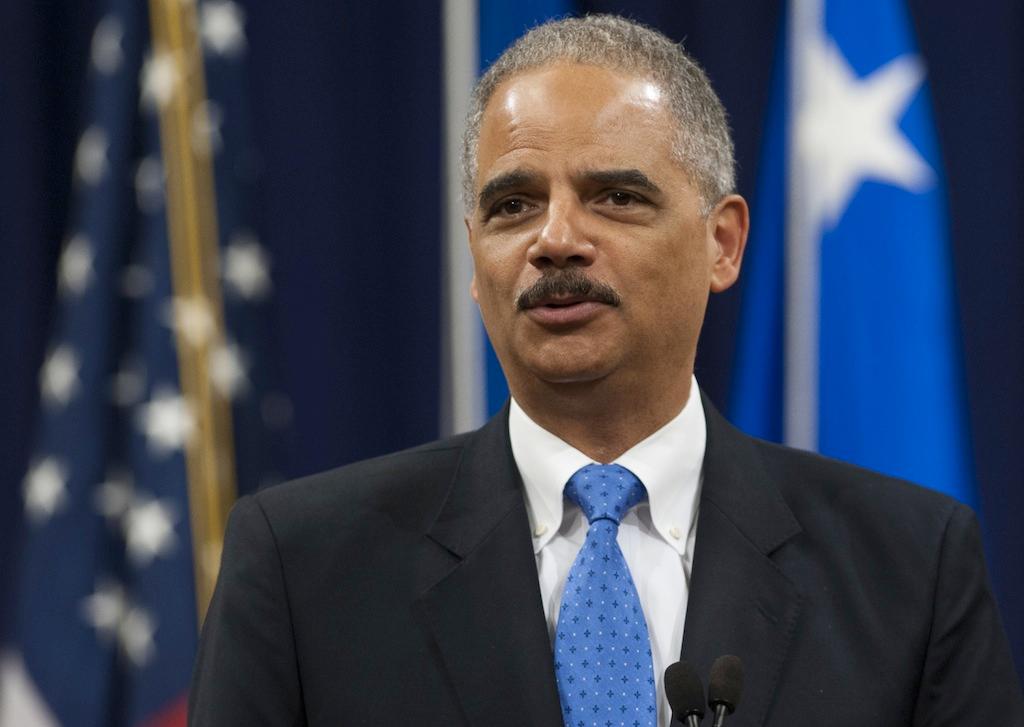Eric Holder announces US drug sentencing reform in major policy shift
Attorney General Eric Holder speaks during a farewell ceremony in honor of outgoing Federal Bureau of Investigation (FBI) Director Robert Mueller at the Department of Justice on Aug. 1, 2013.
The United States is softening its all-out war on drugs of the past 40 years.
"Low-level, non-violent" drug offenders will no longer face mandatory minimum prison sentences, Attorney General Eric Holder announced Monday as part of a major reform package aimed at reducing the country's gigantic federal prison population.
"They now will be charged with offenses for which the accompanying sentences are better suited to their individual conduct, rather than excessive prison terms more appropriate for violent criminals or drug kingpins," Holder said in a speech at the American Bar Association in San Francisco.
"By reserving the most severe penalties for serious, high-level, or violent drug traffickers, we can better promote public safety, deterrence, and rehabilitation, while making our expenditures smarter and more productive."
Mandatory sentencing has contributed to a startling statistic: the United States, with five percent of the world's population, houses 25 percent of its prisoners.
Holder said drug dealers who have no links with "large-scale organizations, gangs, or cartels" will not be charged with offenses that carry five or 10-year minimum mandatory prison sentences.
That means federal prosecutors can exclude in their indictments the quantities of illegal substances confiscated, which is how minimum mandatory sentences are decided. The law won't be changed and the quantity will still help determine a sentence. But the move will allow judges and lawyers to sidestep the strict federal laws.
Holder said the United States could not "simply prosecute or incarcerate our way to becoming a safer nation."
"To be effective, federal efforts must also focus on prevention and reentry," he said. "We must never stop being tough on crime. But we must also be smart and efficient when battling crime and the conditions and the individual choices that breed it."
There is also a legislative plan that supports Holder's initiative. If passed — and for that it will need bipartisan support — the bill could give federal judges more leeway on mandatory minimum sentences.
"Widespread incarceration at the federal, state, and local levels is both ineffective and unsustainable," Holder said. "It imposes a significant economic burden — totaling $80 billion in 2010 alone — and it comes with human and moral costs that are impossible to calculate."
Since the 1980s, when many tough-on-drugs bills were made law, the federal prison population has grown some 800 percent. Now, according to Justice Department officials, federal prisons are about 40 percent over capacity.
Every day, reporters and producers at The World are hard at work bringing you human-centered news from across the globe. But we can’t do it without you. We need your support to ensure we can continue this work for another year.
Make a gift today, and you’ll help us unlock a matching gift of $67,000!
